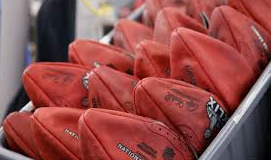The Lesson of Deflategate.
Posted By Cliff Tuttle | January 31, 2015
No. 1,121
Who would have thunk it?
So much about so little. But sometimes things happen that way.
The most obvious scenario has hardly been discussed. Ball boy forgets or is too lazy to inflate the game balls. Official forgets or is too lazy to check them.
Mistakes happen all of the time and when they do, other people often assume the worst.
Of course, after all this, the ball boy and the official are not going to tell the truth. They should, but they won’t. They are afraid of being fired — and with good reason. And so, it continues to be a big mystery.
As President Obama likes to say, we have here a “teachable moment.”
The Patriots did exactly the wrong thing in response to the accusation of cheating. They started denying wrongdoing before they had thoroughly investigated the facts. Instead of holding press conferences, they should have immediately announced that an investigation was being conducted and that they would have no comment until they had determined the facts. And then, they should have put the locker room and offices of the team on lock down and brought in their outside counsel to interview everyone who could have information.
The outside counsel’s report and conversations with management are, of course, subject to lawyer-client privilege. The discussion between lawyer and client cannot be discovered in litigation, or even by the almighty NFL. This gives management an opportunity to sift through the data and formulate conclusions in an orderly way. It also enables the lawyer and client to have candid conversations off the record.
Then, the following day, a spokesman for the team should have announced the factual findings. The focus should be on facts — not denial of accusations. No member of management, coach, team member or other insider should be permitted to discuss the matter with the press or the public. Of course they must cooperate with the NFL investigation — but not in a public forum.
What the Patriots did instead was to conduct a series of ill-prepared press conferences. In so doing, they exposed their star quarterback, coach and owner to unnecessary risk that something said would have to be retracted or worse. And more importantly, all of these presentations were hastily prepared, inarticulate and, very frankly, not terribly credible. It didn’t have to be that way.
None of the ideas expressed here are revolutionary. Most organizations of similar size conduct internal investigations when the situation demands. They usually have a damage control plans, too.
CLT




